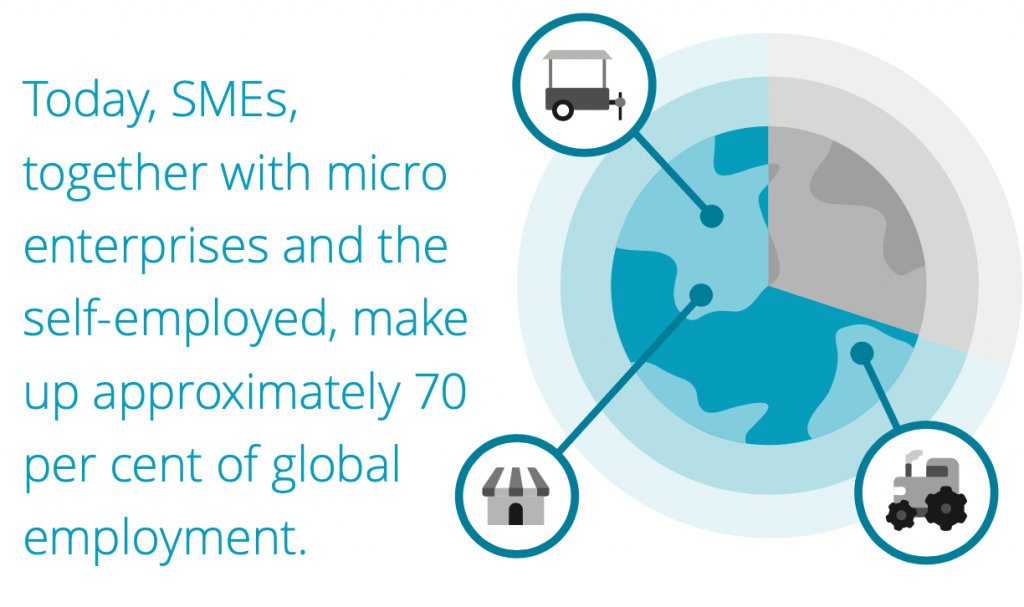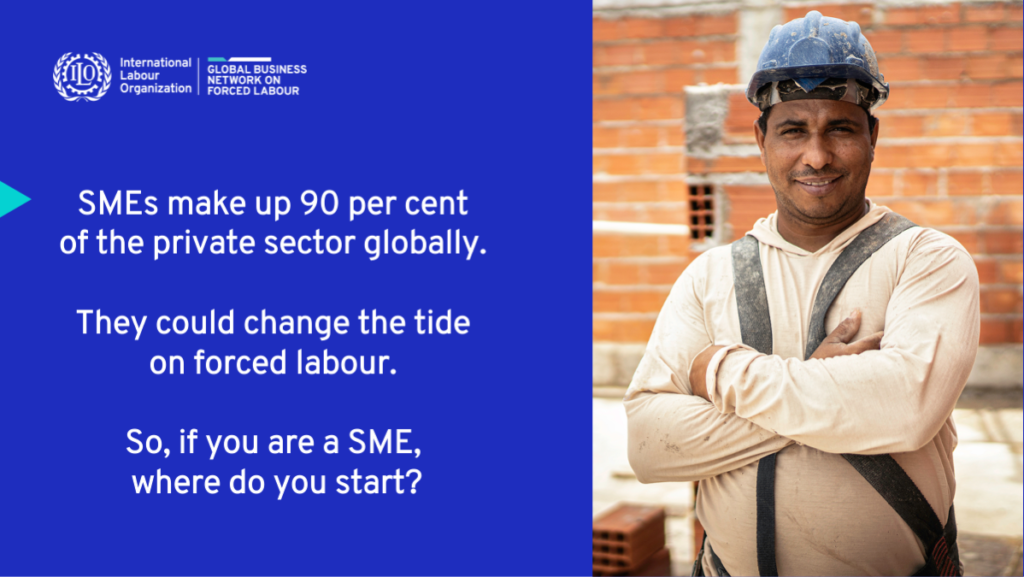Forced labour is on the rise due to the COVID-19 crisis. Efforts to eradicate forced labour are dominated by large enterprises, despite SMEs making up 90 per cent of the private sector globally.
We, the ILO Global Business Network on Forced Labour, want to unleash the potential of SMEs. So, if you are a SME, where do you start? We’ve come up with 10 steps to begin your journey.

10 STEPS TO ENDING FORCED LABOUR
1. FIND OUT MORE ABOUT FORCED LABOUR.
Take two minutes to read our fact sheet and learn what forced labour is, where it happens, and how.
2. LEARN FROM EXPERTS. LISTEN TO OUR PODCAST.
Stream or download our new podcast series on why SMEs can change the tide on forced labour and how to make this happen.
3. JOIN US. COLLABORATE WITH COMPANIES, BUSINESS NETWORKS AND THE UN.
Join us to access expertise, resources, and peer support. Any business employing 250 people or less, and/or making USD 25 million or less, can join for free, as can employer and business membership organizations or business networks. For more information and to apply, please visit our Membership page.
4. NOT READY TO JOIN YET? THEN SIGN UP TO OUR NEWSLETTER.
In 2021, we will share new tools for SMEs and launch a competition where SMEs and their representative organizations can access funding and mentoring. Sign up to the newsletter and we’ll keep you posted.
5. SPEAK UP ABOUT FORCED LABOUR.
Talk to your local, regional and national decision makers about forced labour and ask them what they are doing to eradicate it. Ask your peer companies, suppliers and clients what they are doing. ILO GBNFL produces policy briefs that can help inform your advocacy efforts. Our latest policy brief sets out how and why businesses wish to eradicate forced labour.
6. JOIN AN EMPLOYER AND BUSINESS MEMBERSHIP ORGANIZATION OR BUSINESS NETWORK.
Join your national, regional or sectoral employers’ organization or a relevant business network to receive information, resources and tools. The International Organisation of Employers’ (IOE) membership list is a useful place to start.
7. SHARE THE MESSAGE: PUT SMES FIRST IN RESPONSIBLE BUSINESS CONDUCT INITIATIVES.
SMEs approach responsible business conduct very differently compared to larger enterprises. This is why responsible business conduct initiatives fail to reach SMEs. Find out how to change this by reading this ILO GBNFL policy brief.
8. IMPLEMENT FAIR RECRUITMENT PRACTICES.
Migrant workers are especially vulnerable to forced labour and other types of exploitation. Fair recruitment practices can dramatically reduce this vulnerability. To find out more visit the ILO’s fair recruitment pages.
9. GET SUPPORT FROM INITIATIVES WORKING WITH THE PRIVATE SECTOR.
Use the Interactive Map for Business of Anti-Human Trafficking Organizations to find the right initiative, close to you.
10. SUPPORT THE ILO’S PROTOCOL ON FORCED LABOUR.
This legally binding treaty requires governments to take new measures to tackle forced labour in all its forms. It works on three main levels: protection, prevention and compensation. As an international treaty, countries must first ratify the Protocol before it enters into force. Click here to sign the petition and join the 50 For Freedom campaign.
